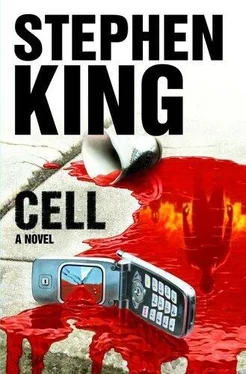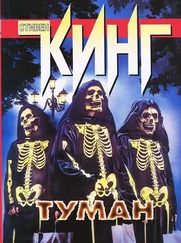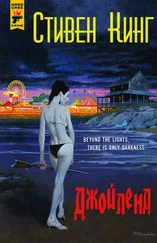"—but there's nothing in them—no compact discs or cassette tapes– and no wires linking them. They're just slaves that pick up the master-disc audio and rebroadcast it."
"If their mouths are open, the music comes from them, too," Jordan said. "It's just little . . . not hardly a whisper . . . but you can hear it."
"No," Clay said. "That's your imagination, kiddo. Gotta be."
"I haven't heard that myself," Ardai said, "but of course my ears aren't what they were back when I was a Gene Vincent and the Blue Caps fan. 'Back in the day,' Jordan and his friends would say."
"You're very old-school, sir," Jordan said. He spoke with gentle solemnity and unmistakable affection.
"Yes, Jordan, I am," the Head agreed. He clapped the boy on the shoulder, then turned his attention to the others. "If Jordan says he's heard it … I believe him."
"It's not possible," Clay said. "Not without a transmitter."
"They are transmitting," the Head replied. "It is a skill they seem to have picked up since the Pulse."
"Wait," Tom said. He raised one hand like a traffic cop, lowered it, began to speak, raised it again. From his place of dubious shelter at Headmaster Ardai's side, Jordan watched him closely. At last Tom said, "Are we talking telepathy here?"
"I should guess that's not exactly le mot juste for this particular phenomenon," the Head answered, "but why stick at technicalities? I would be willing to wager all the frozen hamburgers remaining in my cooler that the word has been used among you before today."
"You'd win double burgers," Clay said.
"Well yeah, but the flocking thing is different," Tom said.
"Because?" The Head raised his tangled brows.
"Well, because . . ." Tom couldn't finish, and Clay knew why. It wasn't different. The flocking wasn't human behavior and they'd known it from the moment they'd observed George the mechanic following the woman in the filthy pants suit across Tom's front lawn to Salem Street. He'd been walking so closely behind her that he could have bitten her neck . . . but he hadn't. And why? Because for the phone-crazies, biting was done, flocking had begun.
At least, biting their own kind was done. Unless—
"Professor Ardai, at the beginning they killed everyone . . ."
"Yes," the Head agreed. "We were very lucky to escape, weren't we, Jordan?"
Jordan shuddered and nodded. "The kids ran everywhere. Even some of the teachers. Killing . . . biting . . . babbling nonsense stuff. . . I hid in one of the greenhouses for a while."
"And I in the attic of this very house," the Head added. "I watched out of the small window up there as the campus—the campus I love—literally went to hell."
Jordan said, "Most of the ones who didn't die ran away toward downtown. Now a lot of them are back. Over there." He nodded his head in the general direction of the soccer field.
"All of which leads us to what?" Clay asked.
"I think you know, Mr. Riddell."
"Clay."
"Clay, fine. I think what's happening now is more than temporary anarchy. I think it's the start of a war. It's going to be a short but extremely nasty one."
"Don't you think you're overstating—"
"I don't. While I have only my own observations to go on—mine and Jordan's—we've had a very large flock to observe, and we've seen them going and coming as well as. . . resting, shall we say. They've stopped killing each other, but they continue to kill the people we would classify as normal. I call that warlike behavior."
"You've actually seen them killing normals?" Tom asked. Beside him, Alice opened her pack, removed the Baby Nike, and held it in her hand.
The Head looked at him gravely. "I have. I'm sorry to say that Jordan has, too."
"We couldn't help," Jordan said. His eyes were leaking. "There were too many. It was a man and a woman, see? I don't know what they were doing on campus so close to dark, but they sure couldn't've known about Tonney Field. She was hurt. He was helping her along. They ran into about twenty of them on their way back from town. The man tried to carry her." Jordan's voice began to break. "On his own he might have gotten away, but with her. . . he only made it as far as Horton Hall. That's a dorm. That's where he fell down and they caught them. They —"
Jordan abruptly buried his head against the old man's coat—a charcoal gray number this afternoon. The Head's big hand stroked the back of Jordan's smooth neck.
"They seem to know their enemies," the Head mused. "It may well have been part of the original message, don't you think?"
"Maybe," Clay said. It made a nasty sort of sense.
"As to what they are doing at night as they lie there so still and open-eyed, listening to their music . . ." The Head sighed, took a handkerchief from one of his coat pockets, and wiped the boy's eyes with it in matter-of-fact fashion. Clay saw he was both very frightened and very sure of whatever conclusion he had drawn. "I think they're rebooting," he said.
15
" You note the red lamps, don't you?" the Head asked in his carrying I-will-be-heard-all-the-way-to-the-back-of-the-lecture-hall voice. "I count at least sixty-thr—"
"Hush up!" Tom hissed. He did everything but clap a hand over the old man's mouth.
The Head looked at him calmly. "Have you forgotten what I said last night about musical chairs, Tom?"
Tom, Clay, and Ardai were standing just beyond the turnstiles, with the Tonney Field archway at their backs. Alice had stayed at Cheatham Lodge with Jordan, by mutual agreement. The music currently drifting up from the prep-school soccer field was a jazz-instrumental version of "The Girl from Ipanema." Clay thought it was probably cutting-edge stuff if you were a phone-crazy.
"No," Tom said. "As long as the music doesn't stop, we have nothing to worry about. I just don't want to be the guy who gets his throat torn out by an insomniac exception to the rule."
"You won't."
"How can you be so positive, sir?" Tom asked.
"Because, to make a small literary pun, we cannot call it sleep. Come."
He started down the concrete ramp the players once took to reach the field, saw that Tom and Clay were hanging back, and looked at them patiently. "Little knowledge is gained without risk," he said, "and at this point, I would say knowledge is critical, wouldn't you? Come."
They followed his rapping cane down the ramp toward the field, Clay a little ahead of Tom. Yes, he could see the red power-lamps of the boomboxes circling the field. Sixty or seventy looked about right. Good-sized sound-systems spotted at ten– or fifteen-foot intervals, each one surrounded with bodies. By starlight those bodies were an eye-boggling sight. They weren't stacked—each had his or her own space—but not so much as an inch had been wasted. Even the arms had been interwoven, so that the impression was one of paper dolls carpeting the field, rank on rank, while that music— Like something you'd hear in a supermarket, Clay thought—rose in the dark. Something else rose, as well: a sallow smell of dirt and rotting vegetables, with a thicker odor of human waste and putrefaction lingering just beneath.
The Head skirted the goal, which had been pushed aside, overturned, its netting shredded. Here, where the lake of bodies started, lay a young man of about thirty with jagged bite-marks running up one arm to the sleeve of his NASCAR T-shirt. The bites looked infected. In one hand he held a red cap that made Clay think of Alice's pet sneaker. He stared dully up at the stars as Bette Midler once more began singing about the wind beneath her wings.
"Hi!" the Head cried in his rusty, piercing voice. He poked the young man briskly in the middle with the tip of his cane, pushing in until the young man broke wind. "Hi, I say!"
Читать дальше








